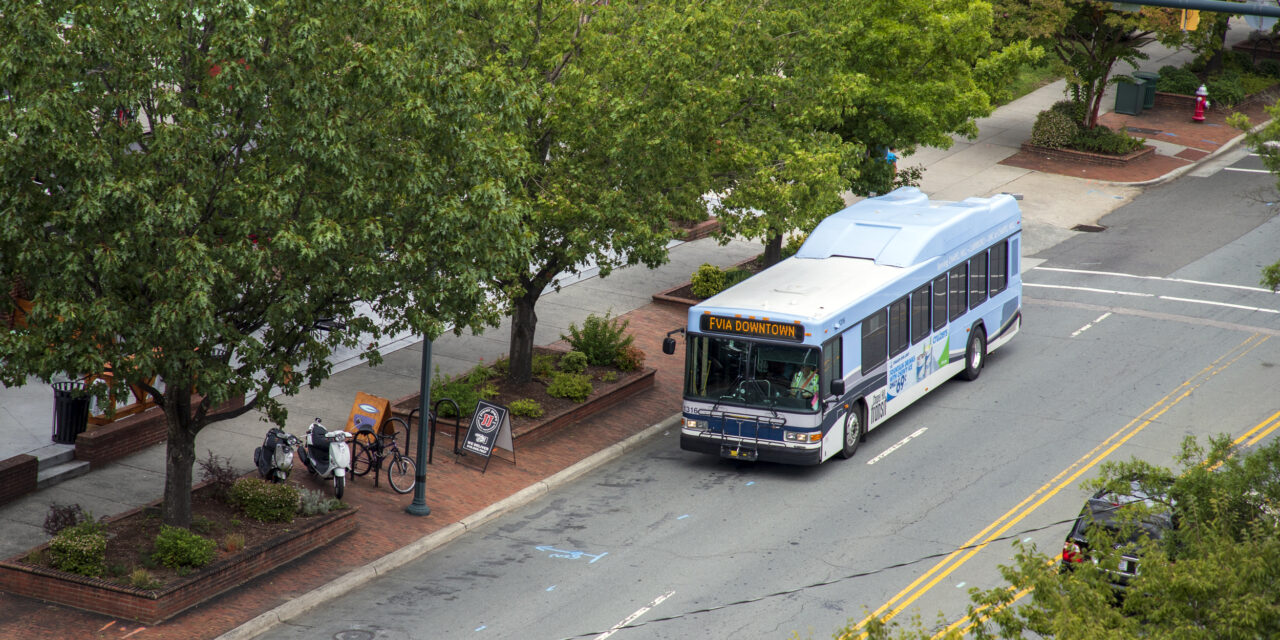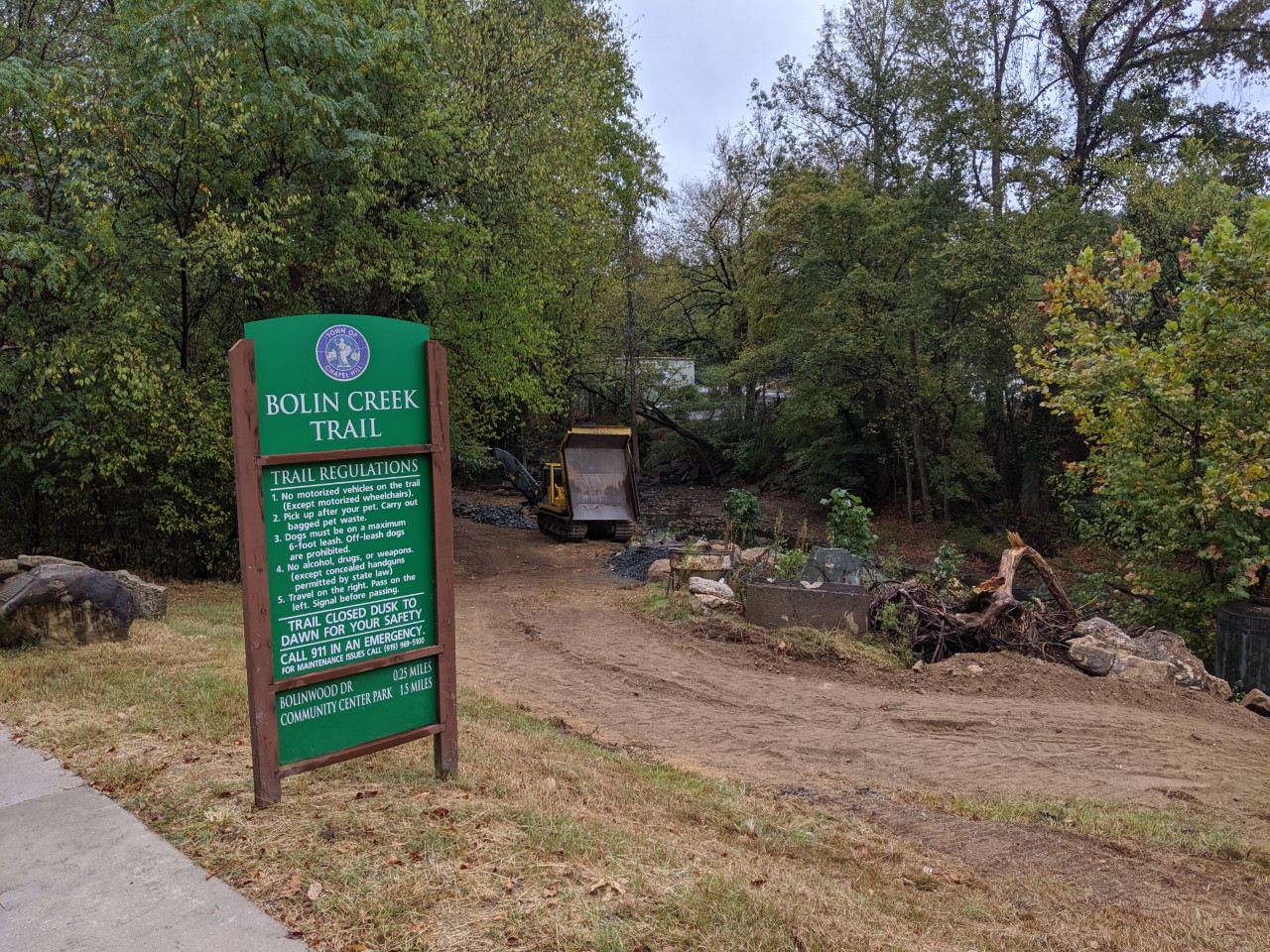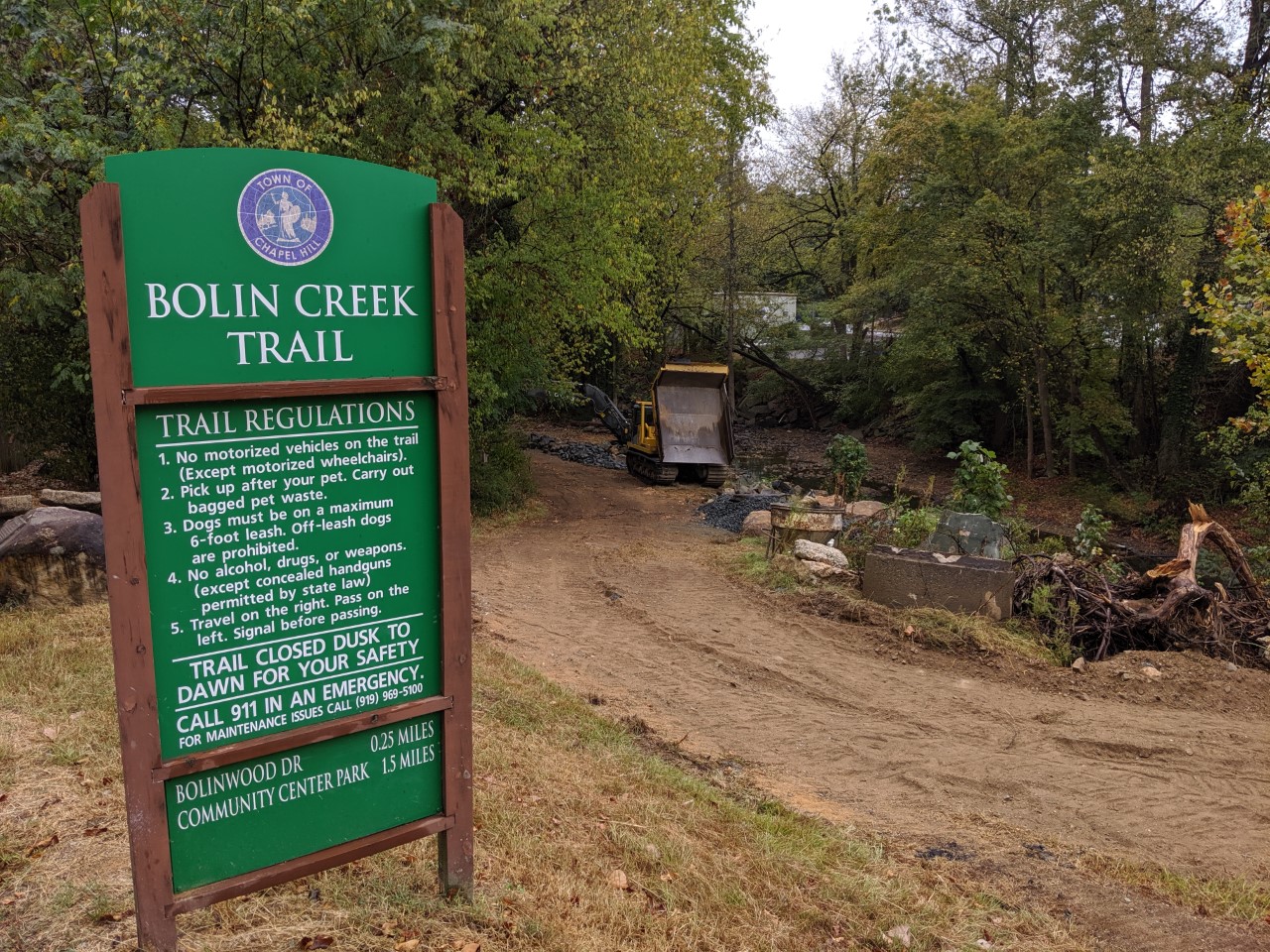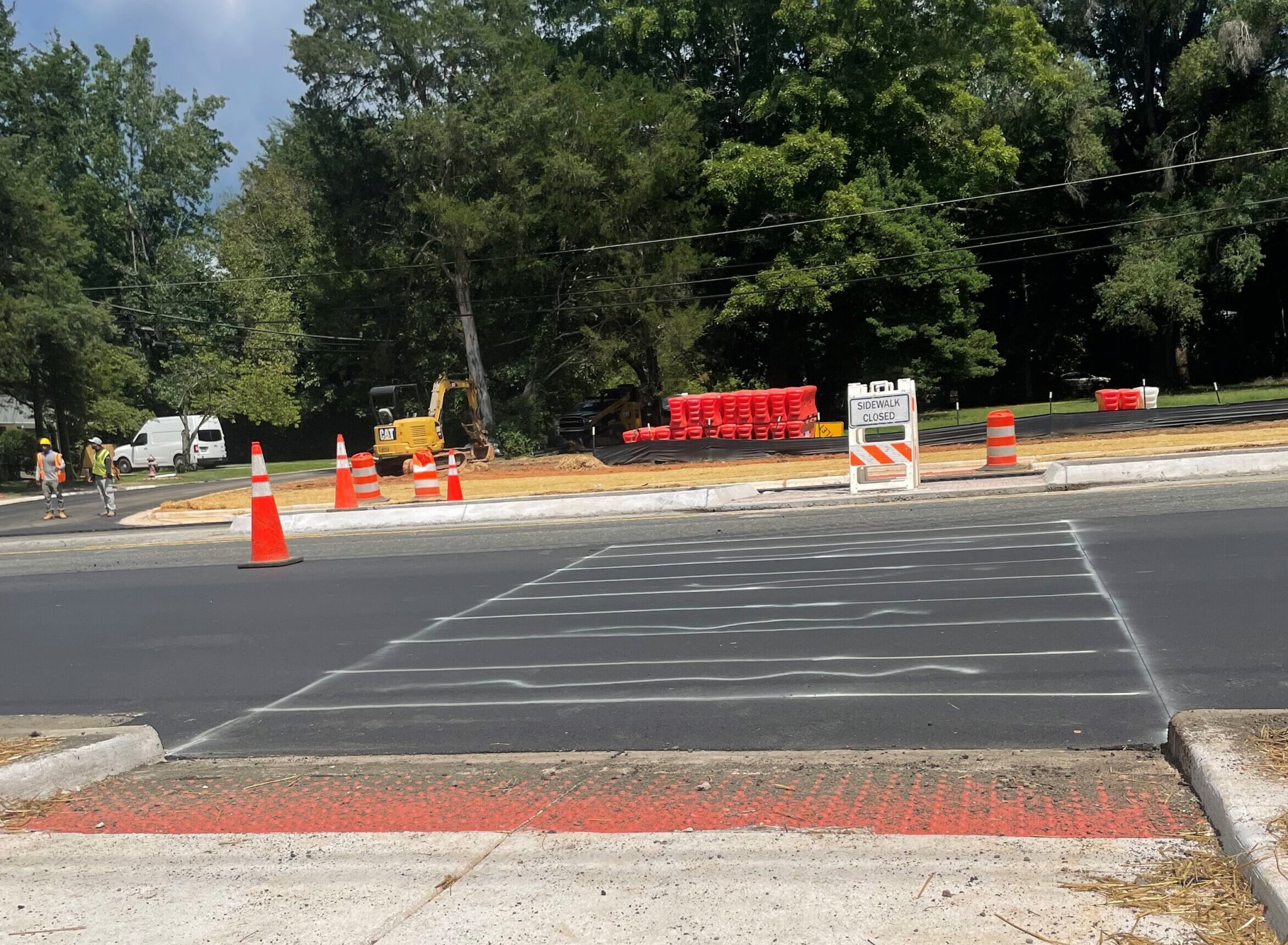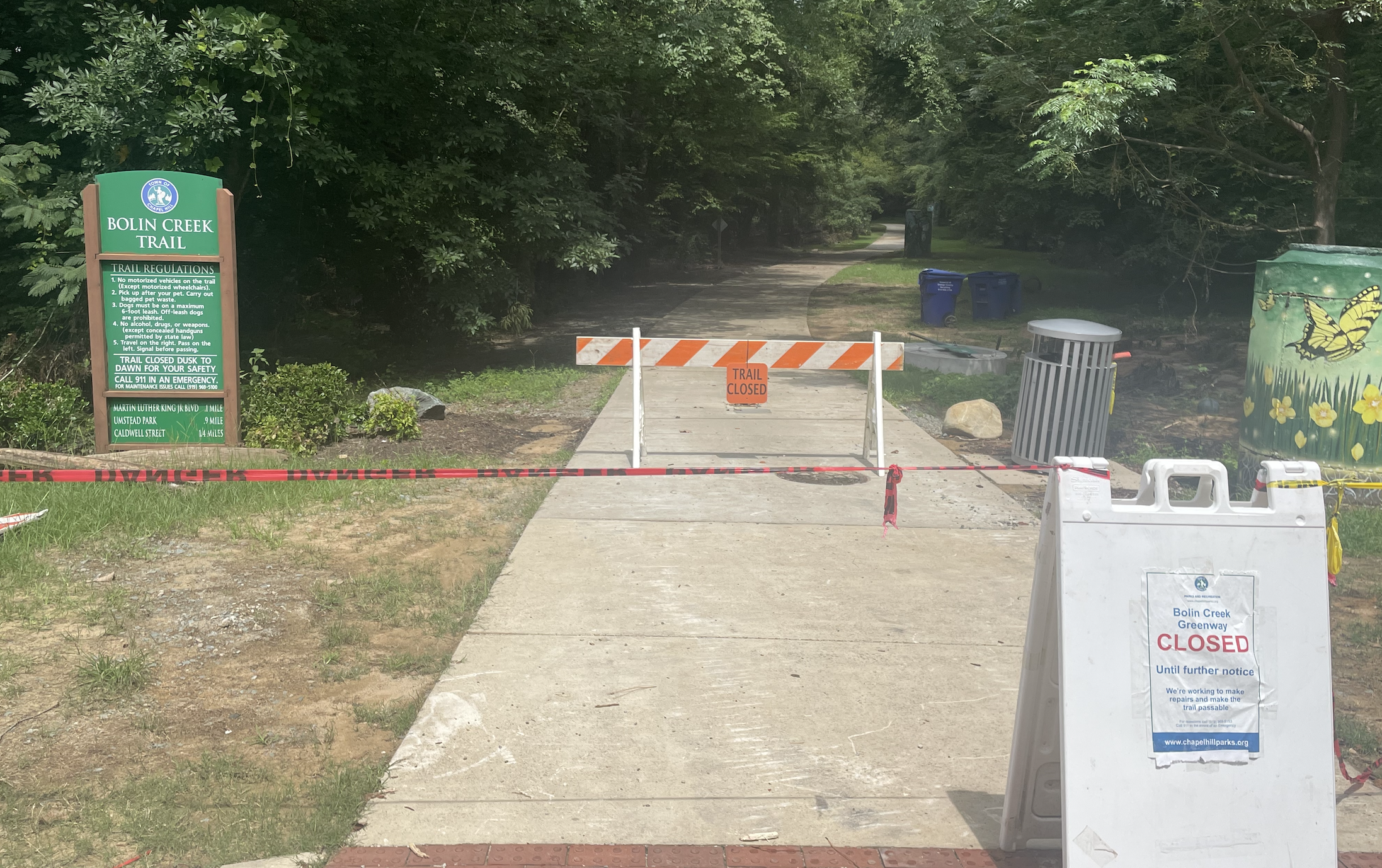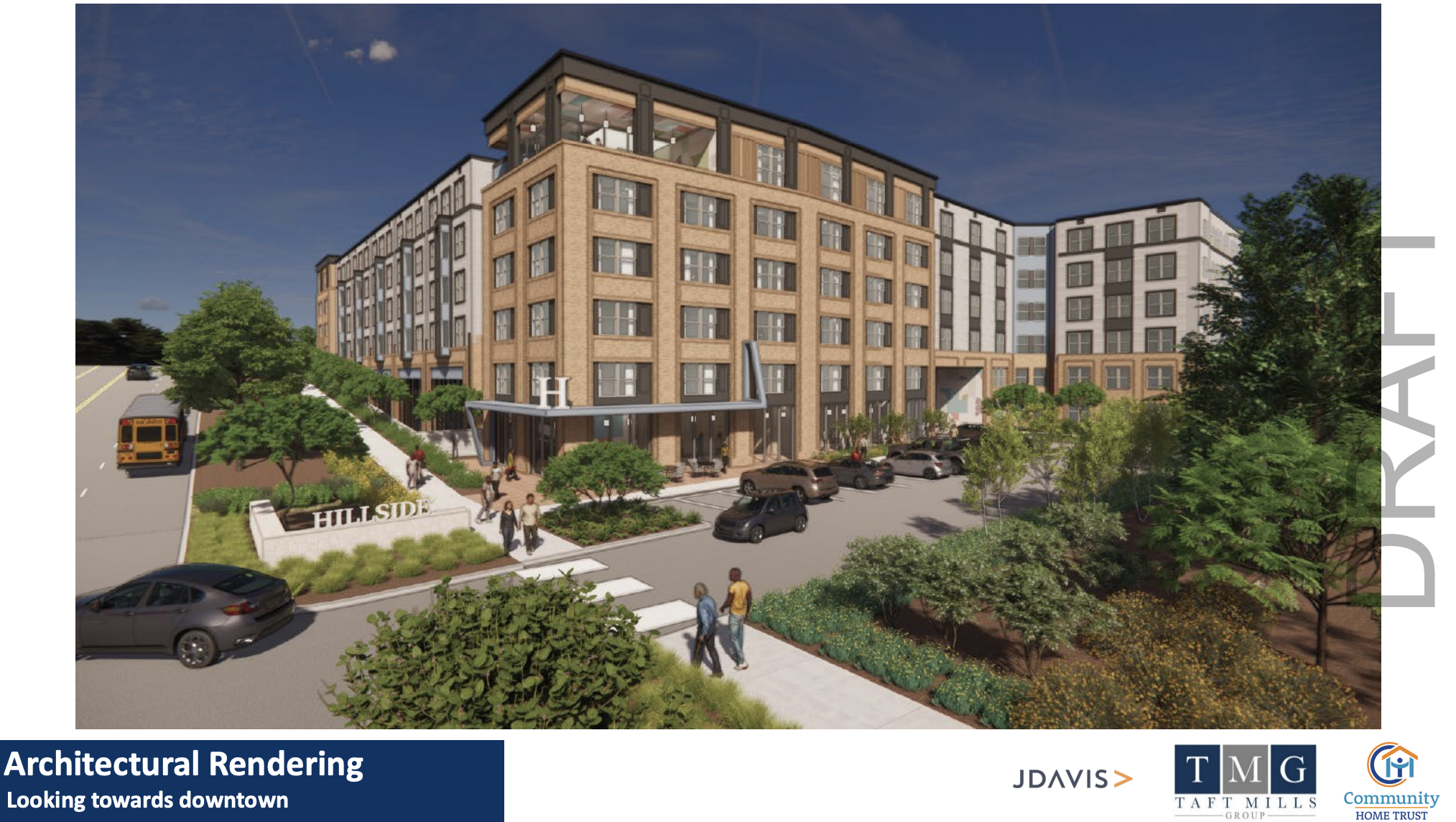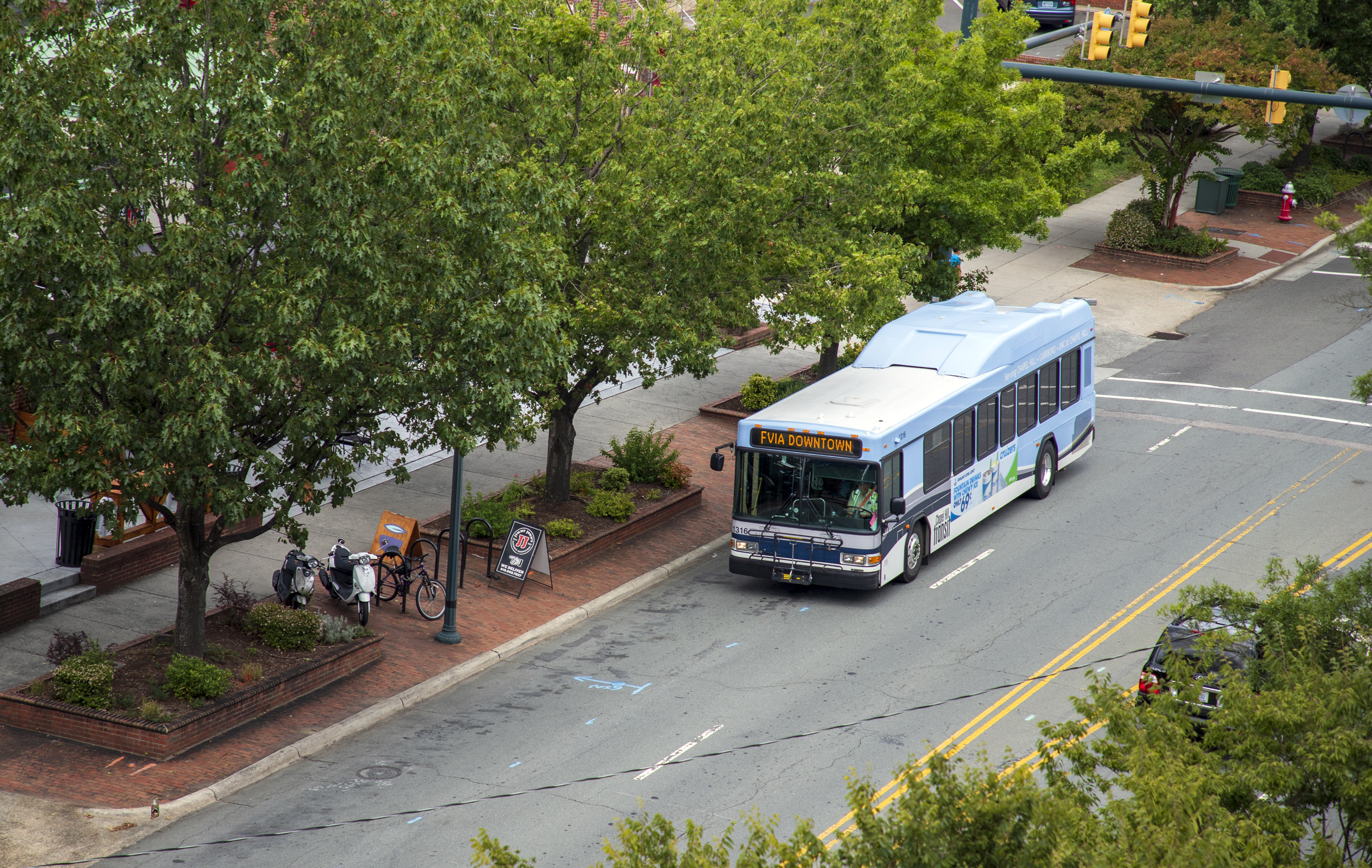August 1, 2024 marked 50 years of Chapel Hill Transit. The town is planning to both celebrate the milestone and honor those involved in creating the service with community events, which are set to take place in the upcoming weeks.
The currently fare free transit service is recognizable by its Carolina blue buses that traverse the Chapel Hill, UNC, and Carrboro communities. While the system officially began operations 50 years ago, Director of Chapel Hill Transit Brian Litchfield said the idea for it started several years beforehand.
Former Chapel Hill Mayor Howard Lee was a big proponent of the transit system, the director explained, and it was one of his grand visions for the town when running for election. A first attempt at a transit service began in the early 70s until it ran out of funding six months into the operation.
But he pushed through with the help of the university, Litchfield said, creating a transit system that has now been running since 1974.
Today, Chapel Hill Transit is a partnership between the town, UNC, and the Town of Carrboro, who officially joined as a partner in 1980. The system became free for patrons in 2002, which is one of its major successes, according to Litchfield.
Serving as director for 11 years, Litchfield said he’s especially proud of Chapel Hill Transit’s progress towards zero or lower emissions, purchasing hybrid buses in the early 2000s before implementing a fleet of fully electric buses in 2018.
And for the last two years, the town has been working to update a critical component of the transit experience, he added.
“Many of our bus stops have been in place since 1974 when the system started,” explained the transit director. “About 100 of them have shelters today and have some levels of improvement, but a lot of that, again, was done between the 70s and mid 90s.”
The town plans to replace the existing bus stops with visible shelters, which Litchfield said will hopefully attract new patrons to the transit system.
“They drive by a sign in the ground and they might go, ‘uh, okay.” the transit director said. “But if they see a shelter and it looks nice and it has lighting and those sort of things, those are things that might encourage someone who doesn’t ride the bus on a regular basis, perhaps, to give it a try.”
The transit director said the town is also working on another project to improve transit along one of Chapel Hill’s most highly traveled corridors.
The Bus Rapid Transit Project seeks to add dedicated bus lanes along Martin Luther King Jr. Boulevard, South Columbia Street, and US 15-501 South. Litchfield said this will allow bus lines to run more frequently and on-time, contributing to the town’s Complete Communities effort.
The project also plans to include a multi use path on either side of the street, seeking to expand pedestrian and bike opportunities along a busy corridor where there currently are little to none for them, Litchfield added.
“So it’s a significant investment in helping start to reshape that corridor from a lot of lanes that carry a lot of single occupant vehicles to something that many of us can use, whether we bike, bus, or roll through that corridor,” Litchfield explained.
Chapel Hill Transit will continue celebrating 50 years by partnering with the community for upcoming events, like the Good Neighbor Initiative Cookout on September 26 and a reception on October 17. The reception will include the unveiling of a plaque to celebrate those involved in creating the transit system.
“Because without Mayor Lee, without Mayor [Robert] Drakeford, and the many folks that came after that, we wouldn’t be talking about this today,” Litchfield said.
Details regarding the celebrations will be shared on the town’s website.
Featured photo via the Town of Chapel Hill.
Chapelboro.com does not charge subscription fees, and you can directly support our efforts in local journalism here. Want more of what you see on Chapelboro? Let us bring free local news and community information to you by signing up for our newsletter.

